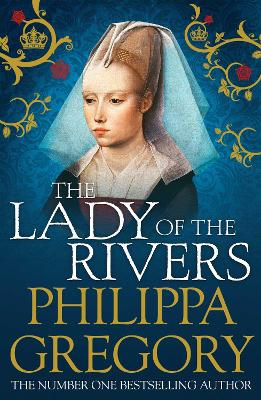Reviewed by gmcgregor on
Gregory begins Jacquetta's story with a meeting between our heroine and Joan of Arc as pre-teens, while Joan is being held by Jacquetta's uncle. This is used to establish the plot device of Jacquetta's family's claim to be descended from water goddess Melusina, and set up Jacquetta's interest in fortune-telling, primarily through tarot cards. When Jacquetta grows up, she's married off to much-older John, the Duke of Bedford and brother to the King of England. Gregory paints this marriage as never consummated...the Duke is mostly interested in using Jacquetta to further his interest in alchemy and believes she must remain virginal to do so. They never develop much of a relationship, but she does develop a big old crush on her husband's chamberlain, a handsome young knight called Richard Woodville. When John dies, she and Richard wed...in secret, at first, because technically Jacquetta needs the Crown's permission to remarry and knows they'll never allow the match.
From there, Jacquetta and John join the English Court, under the rule of Henry VI and his high-spirited French bride, Margaret of Anjou. Jacquetta becomes Margaret's maid of honor and closest friend, and is by her side through most of the events of the early period of the Wars of the Roses...at least, when she's not having children, because she's basically constantly pregnant. She tries to protect the Lancastrian Royal Couple from themselves (pious, timid Henry lets powerful-minded nobles run him roughshod and drain the royal treasury, and his lack of marital attentions to his lively wife leads to an affair), only to mostly be unsuccessful. When her husband is captured in battle with the Yorks and has to swear to set down arms against them to be freed, Jacquetta is relieved to leave Court behind and settle down to life as country gentry...until, of course, her oldest daughter Elizabeth comes to the door hand-in-hand with Yorkist King Edward.
Since this book provides much of the backstory for The White Queen, I was afraid it would be just as immersed in the kind of silly mysticalism that's all over the previous book and made it so hard for me to enjoy it. Happily, though, there's much less of that in here, and it's integrated into the plot in a way that feels organic. My biggest issue with The Lady of the Rivers is that Jacquetta herself is a fairly passive character who mostly reacts to the events around her. Margaret of Anjou is the one who drives them, and I kind of wish she'd been the protagonist instead, because she seemed BONKERS in a delightfully dramatic kind of way.
Look, I like Philippa Gregory's books. I don't think they're super high quality, but they're enjoyable to read and as much as I like to be pretentious about my taste in novels, sometimes something that's fun and easy doesn't have to be more than that. But if you've read her work before, you know what you're getting into: high drama and questionable historical sourcing. Sometimes they're a little better, sometimes they're a little worse. This falls on the mid-point for me...it's fine. It's not amazing, it's not terrible. I liked reading it and I'd read it again if I do a read-through of the whole Plantagenet-Tudor cycle like I'm planning on one day. I'd recommend it if you like Gregory's work, but if historical fiction is not your thing, it's not unmissable by any means.
Reading updates
- Started reading
- 19 December, 2017: Finished reading
- 19 December, 2017: Reviewed
